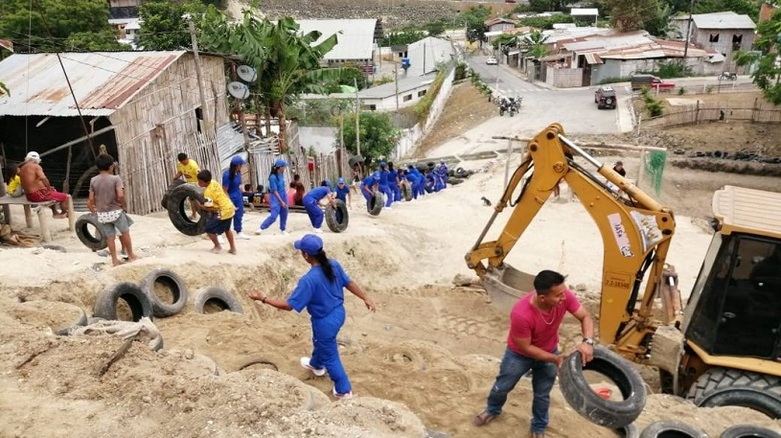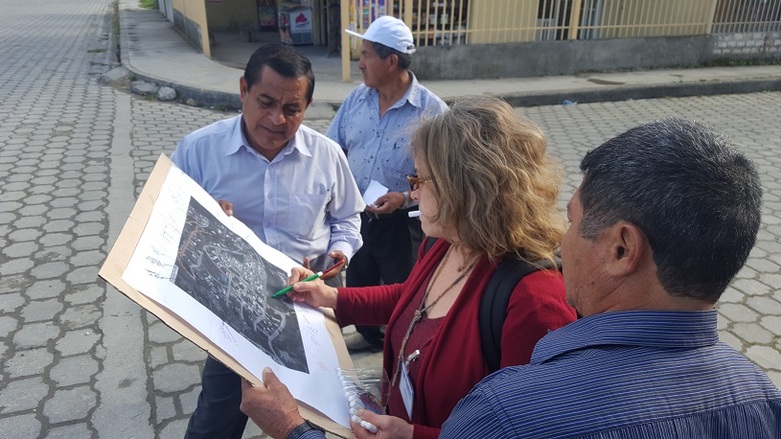Improving the resilience of cities to climate and disaster risks
Resilient Cities (CiRes)
-
Commissioning Party
German Federal Ministry for Economic Cooperation and Development (BMZ)
-
Country
-
Lead executing agency
More
-
Overall term
2023 to 2026
-
Other Stakeholders
Secretariat for Risk Management (SGR), Ministry of Environment, Water and Ecological Transition (MAATE)
-
Products and expertise
Climate, environment, natural resource management
Context
Due to its location, Ecuador frequently experiences earthquakes, volcanic eruptions, floods and droughts. As a result of climate change, these extreme weather events will increase, which will have a negative impact on the country’s economic and social systems.
Almost two thirds of Ecuador's inhabitants live in cities. Many of them are affected by social inequality and poverty. At the same time, they live in climatic risk areas such as on slopes or near volcanoes.
Effective disaster risk management, adaptation to climate change and safe urban development are prerequisites for making cities more resilient. So far, however, the responsible institutions have not worked in a sufficiently coordinated manner.
Objective
Comprehensive risk management approaches that take current and future climate and disaster risks into account are integrated into national urban development policy and local urban development processes.

Appraoach
The project co-operates with the Ministry of Urban Development and Housing (MIDUVI) as its political partner, as well as with the Secretariat for Risk Management (SGR) and the Ministry of Environment, Water and Ecological Transition (MAATE).
The project offers technical support in three areas.
- It promotes approaches for integrated disaster and climate risk management in cities, which improves urban resilience and provides analyses of financing mechanisms.
- It advises four cities in Ecuador on improving urban resilience, taking into account current and future climate and disaster risks. The project also incorporates urban resilience criteria into the planning of investment projects and the implementation of pilot measures.
- It improves cooperation between cities, authorities and non-governmental stakeholders by promoting knowledge management on urban resilience and the exchange of knowledge and experience.
Last update: December 2023







